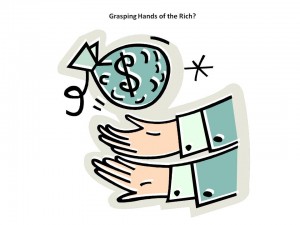As an aphorism to determine worldviews, ‘Is the glass half empty or half full?’, is possibly one of the most puerile definitions of pessimism and optimism that’s ever been uttered. So, what are the origins of pessimism and optimism, and why is modern culture so decadently afraid of pessimism?
Etymologically, optimism and pessimism follow close together in history. Optimism, perhaps, would probably be the first of the two when it appeared in Gottfried Leibniz’s philosophy/mathematical precept of his maximum/minimum principle. Like Descartes, Leibniz’s rationalist outlook espoused a doctrine that required a basic misunderstanding, or denial, of reality. What started with Leibniz and then became popular throughout Western, and then Eastern, thought, was the idea of “God knows best.” In essence, if something happens, such as an earthquake, plague, or horrible natural disaster, we shouldn’t confront its suffering because it was God’s will, and questioning God’s will was heresy. That is the basis of optimism
Obviously, this outlook didn’t survive long before being criticized for its basic lack of awareness. Voltaire’s most widely celebrated book, Candide ou l’Optimisme, was an indictment of many Enlightenment precepts that dictated an optimistic philosophy. That’s not to say that Voltaire, or even Candide, was pessimistic, but it was a popular rejection of optimistic thought. The first use of pessimism came, though, with Rousseau’s Discourse on the Arts and Sciences (1750), in which he claimed man was a moral degenerate. But even then, pessimism didn’t take root within our culture.
Pessimism, as a philosophy, became popular in the 19th-century, and there are two philosophers that we owe this to: Schopenhauer and Nietzsche. Schopenhauer is probably the most distinct, because his definition of pessimism is perhaps how most would define it. Essentially, Schopenhauer came up with the idea of the Will, which can be distilled into the idea of human desire. We desire power, sex, money, love, eternal happiness, eternal life, God’s grace, etc. etc. But, let’s say we achieve our desire. Well, then we’ve stagnated and there’s no point in living. Okay, well, then let’s say we don’t achieve our desire, and our Will is unfulfilled. Then we would be constantly depressed, and again there would be no point to living. Either way, the Will led to human oblivion. So rather than addressing those inevitabilities, Schopenhauer espoused the idea of resignation. In many ways, Schopenhauer’s conception of the Will and resignation mimicked much of Buddhism’s conception of reaching Nirvana, the state of nothing, unbecoming, unforming. Because life, the state of becoming, is so unavoidably disastrous on the self, we should all try to ascend it through avoiding it was the basic concept of Schopenhauerian philosophy.
Nietzsche, on the other hand, rejected this outright. Yet, he was still a pessimist, though some might claim he was one of the first existentialist—which is just as arguable a case. Though Nietzsche’s relationship to Schopenhauer is tenuous, with first lauding him and then despising him in the course of a few decades, Nietzsche was undeniable influenced by Schopenhauer, which isn’t necessarily a bad thing. Nietzsche’s conception of pessimism is probably best summarized by scholar Joshua Foa Dienstag, in his paper ‘Nietzsche’s Dionysian Pessimism’, in which he states, “Dionysian pessimism is a perspective on life that can draw sustenance, rather than recoil, from the disordered, disenchanted world left to us after the demise of metaphysics.” Because Nietzsche had such an extensive philosophy that bounced around from one topic to the next, it would be perhaps best to just suggest that his philosophy of Dionysian Pessimism was a form of self-affirmation through admitting the destructiveness of life and confronting it rather than resigning.
Now, this is all different from the “half-full/half-empty” dichotomy that we today associate with optimism and pessimism. Optimism is now the conception of the individual having a bright outlook on life, and then pessimism is the negation of such. But that’s a psychological disposition of the two, which, in many respects, deviates from the philosophical framework of what they were originally. This can be related back to outcome expectancies, which first came into play some time in the 20th-century. Psychologists as a whole suppose the idea of changing the outlook of man, and in essence making it better, rather than having patients confront the reality of the universe. This is mostly because people don’t operate, i.e. produce, very well if they’re really depressed about their station life. And so it’s pragmatic to think of man as a device you can easily remedy by making him feel happy.
 Psychology was the death of pessimism…or, I should say, the philosophical conception of pessimism, because within psychology there is this basic tenet of fixing problems. Reality doesn’t necessarily entail the sense of being fixed. Things happen, not all of which are entirely within the control of man’s, or society’s, control. While this can never truly be proven, I would imagine that it’s not inaccurate to state that 99.9% of our lives are controlled by phenomena beyond our ability to control, and the .01% we are given is ultimately inconsequential. And while psychology and modern day thinking does not like the word pessimism, this does not constitute an inversion of reality. Sure, we control our perception of reality, but reality doesn’t bend to our perceptions.
Psychology was the death of pessimism…or, I should say, the philosophical conception of pessimism, because within psychology there is this basic tenet of fixing problems. Reality doesn’t necessarily entail the sense of being fixed. Things happen, not all of which are entirely within the control of man’s, or society’s, control. While this can never truly be proven, I would imagine that it’s not inaccurate to state that 99.9% of our lives are controlled by phenomena beyond our ability to control, and the .01% we are given is ultimately inconsequential. And while psychology and modern day thinking does not like the word pessimism, this does not constitute an inversion of reality. Sure, we control our perception of reality, but reality doesn’t bend to our perceptions.
Pessimism is admitting that time, the universe, reality, is infinitely inconceivable for the individual. There are ultimately many ways to address this philosophical conundrum. One of which is to resign, as Schopenhauer later hypothesized, to spare the self from annihilation. Though there are other ways. The most prominent of which is confrontation. This process would require that the individual admit their ultimate frailty and inability to foresee the panoramic of the universe in our small little corner we have here in one of many, many solar systems, and then simply addressing what’s in front of us—what some might call living in the ‘now’.
But pessimism is not this simplified “my glass is half empty” worldview. It would be like saying hedonist view the glass of water as really filled with magic elixir that will make them feel really good, or that skeptics would question whether or not that was really a glass or some sort of mirage, or rationalists just view the glass in its molecular format, or existentialists view the glass as simply being….you get the idea. Pessimism is a legitimate form of addressing phenomena that does not necessarily connote a negative quality of life, but can in fact be very life-affirming if actually thought through beyond a distilled, overused analogy that’s become far too pervasive within our culture to actually examine its true nature.
Half empty; Half Full,



